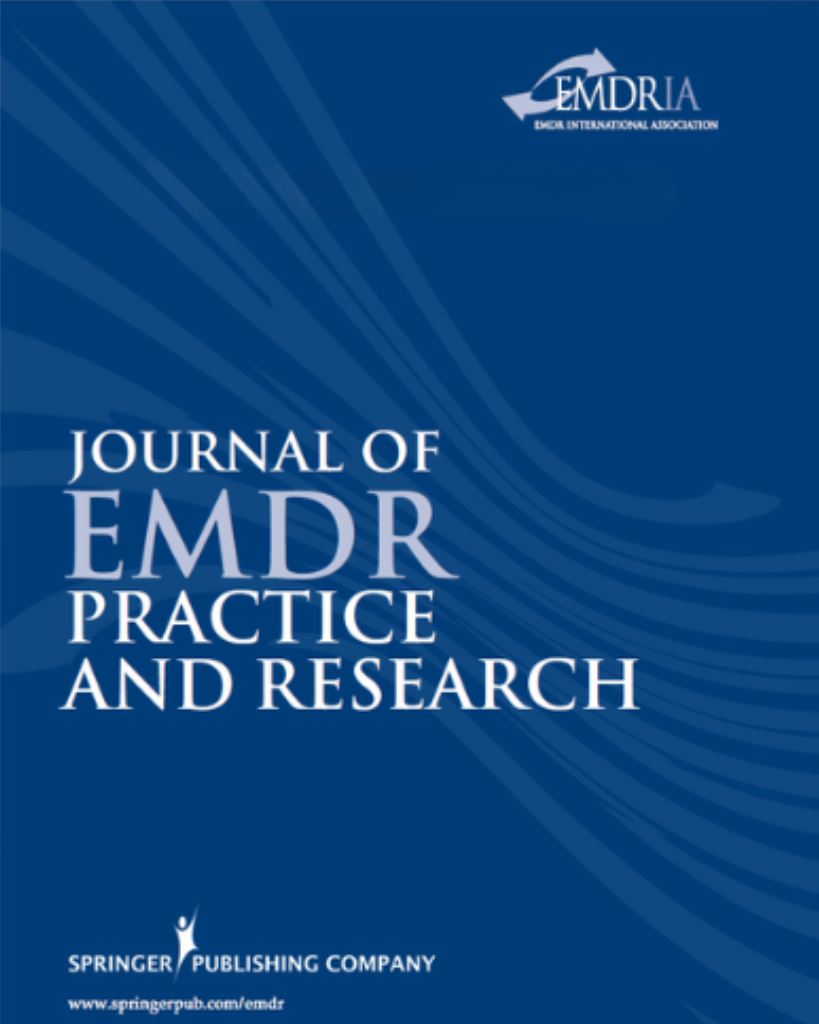EMDR in der Behandlung eines gehörlosen PTBS-Patienten: Vorzüge einer nicht ausschließlich verbalen psychotherapeutischen Intervention – ein Fallbericht
[EMDR in the treatment of a deaf PTSD patient: Advantages of a not entirely verbal psychotherapeutic intervention – a case report]
Article Abstract
“Das Behindertengleichstellungsgesetz (BGG) hat gleichberechtigte Teilhabe von Menschen mit Behinderung zum Ziel. Barrierefreiheit für verschiedene Personengruppen soll angestrebt werden, insbesondere für Gehörlose. Da EMDR eine Psychotherapiemethode ist, die verhältnismäßig wenig auf Verbalinterventionen basiert, sondern deren Kern eine Stimulation der Patient/-innen zur Verarbeitung belastender Erinnerungen (dem sogenannten Reprozessieren) darstellt, wurde ein gehörloser traumatisierter Patient von seiner vorherigen Psychotherapeutin, die die Gebärdensprache beherrscht, aber keine Psychotraumatologin ist, an EMDR-Therapeut/-innen verwiesen, um seine posttraumatischen Beschwerden behandeln zu lassen. Der Fallbericht aus der Praxis zeigt, wie diese Langzeit-Behandlung vonstattenging, und dient dazu, wichtige Hinweise an die Kollegenschaft zu geben, die vor einer vergleichbaren Behandlungsplanung stehen. Er dient auch dazu, Psychotherapieforscher/-innen erste Hinweise für eine mögliche Pilotstudie zu geben.
“Case Report: EMDR in the Treatment of a Deaf PTSD Patient – Advantages of a not entirely verbal psychotherapeutic intervention. The aim of Germany’s Federal Law on Equal Treatment for Disabled Persons is to assure equal participation for handicapped individuals. Barrier-freedom for various groups of persons is the declared objective, notably for the deaf. EMDR is a psychotherapeutic approach with relatively little dependence on verbal interventions. It centers mainly around the encouragement of patients to work through distressing memories (so-called reprocessing). With this in mind, a deaf trauma patient was transferred to EMDR therapists for treatment of his posttraumatic disorders. He was transferred by the psychotherapist who had treated him up to that point and who had a command of sign language but no specialization in traumatology. The case report describes how this long-term treatment developed over time and provides important indications for colleagues embarking on similar courses of therapy. It also serves to provide psychotherapy researchers with material for a potential pilot study.”
—Description from publisher
Article Access
Purchase/Subscription Required
Rickter, A.-K. (2019). EMDR in der Behandlung eines gehörlosen PTBS-Patienten: Vorzüge einer nicht ausschließlich verbalen psychotherapeutischen Intervention – ein Fallbericht. Trauma & Gewalt, 13(2), 170-182. https://doi.org/10.21706/tg-13-2-170
Date
May 13, 2019
Creator(s)
Anna-Konstantina Richter
Client Population
Disabilities
Extent
13 pages
Publisher
Trauma & Gewalt
APA Citation
Rickter, A.-K. (2019). EMDR in der Behandlung eines gehörlosen PTBS-Patienten: Vorzüge einer nicht ausschließlich verbalen psychotherapeutischen Intervention – ein Fallbericht. Trauma & Gewalt, 13(2), 170-182. https://doi.org/10.21706/tg-13-2-170
Audience
EMDR Therapists, Other Mental Health Professionals
Language
German
Content Type
Article, Peer-Reviewed
Access Type
External Resource



